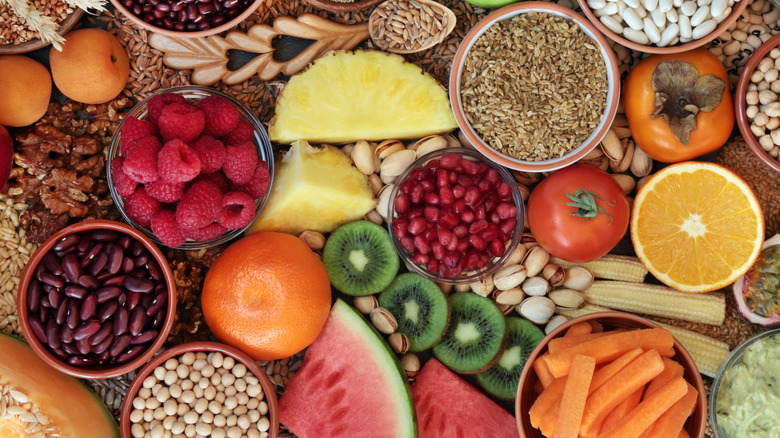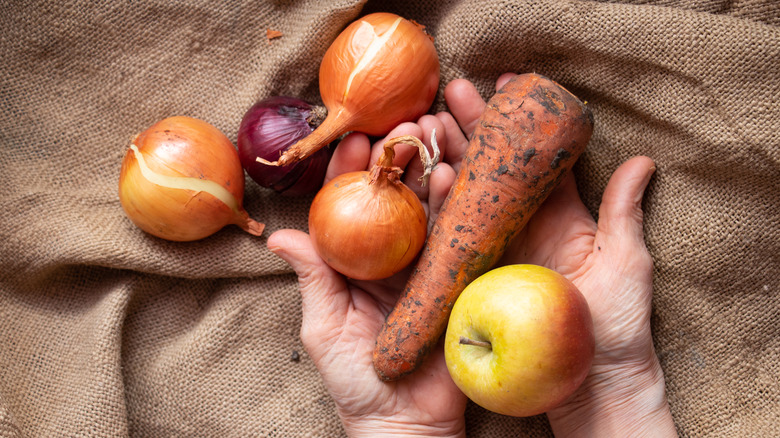What Is A Whole Food, Anyway?
Everyone's body has different needs, so finding a healthy diet that works for your specific constitution can sometimes be an exercise in trial and error. One thing experts do seem to agree on, however, is that packing your diet full of whole foods is an excellent way to give your body the nutrients it needs without having to consume all the junk that it doesn't.
To understand what a whole food actually is, we must first understand the meaning of processed food. While the term has developed a somewhat sinister reputation in the modern lexicon, the U.S. Department of Agriculture defines processed food as any food that has undergone a process that alters it from its natural state. By this definition, even those foods considered healthy — like frozen fruit, cut celery, or canned fish — fall under the blanket of processed food.
Whole foods, on the other hand, are foods that are left as close to their natural state as possible. Defined as having little to no processing and no additives, foods like fresh fruit and vegetables, whole grains like brown rice and oats, and other dry goods like nuts, beans, seeds, and lentils are all considered whole foods, according to NYC Health. While chicken tenders and meatloaf don't make the cut, unprocessed meat and fish can also be added to the list, depending on who you ask, the British Heart Foundation reports.
Whole foods deliver more nutrients
Although plenty of lightly processed foods can be incorporated into a healthy diet, those that have undergone heavy processing often lose much of their fiber, vitamins, and minerals according to Harvard T.H. Chan School of Public Health. When you eat whole foods that haven't had their nutrients cooked, dried, or otherwise stripped away, you're providing your body with more of what it really needs. "One of the biggest advantages of eating whole foods is that you're getting the natural synergy of all of these nutrients together," Tara Gidus, RD, a spokesperson for the American Dietetic Association told Web MD.
To this point, the British Heart Foundation points out that the fiber contained in whole foods (like fresh fruits, vegetables, and whole grains) works to keep us feeling fuller longer while allowing our bodies to absorb the food's sugars and carbohydrates more slowly. Not only does this contribute to weight loss and improved blood pressure and cholesterol levels, but it can also reduce the risk of chronic health conditions like heart disease and diabetes. Per Stanford Lifestyle Medicine, the phytochemicals in whole fruits and vegetables also supply a boost in antioxidants, which can ward off certain types of cancer.

